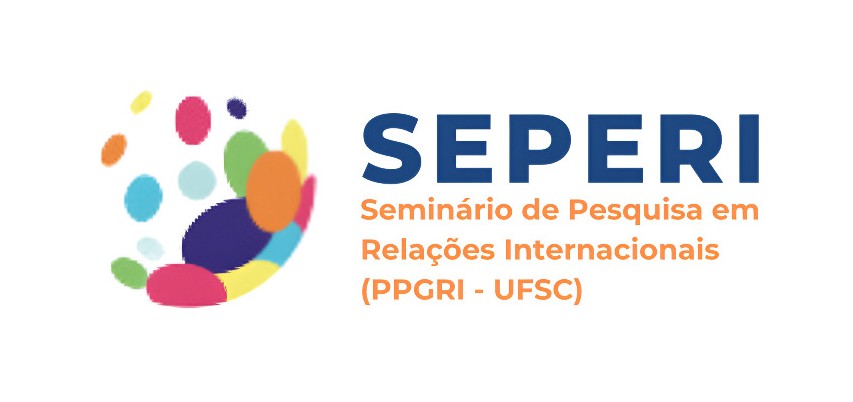PPGRI in English
Graduate Program in International Relations (Doctoral and Master’s programs)
Universidade Federal de Santa Catarina, Florianópolis, Brazil
The Graduate Program in International Relations (PPGRI) aims to encourage and support scientific research in the field of International Relations, with an emphasis on economics and international politics, creating an academic environment that permits the exchange of ideas and conceptual development. PPGRI offers interdisciplinary coursework in an effort to provide a comprehensive approach to international phenomena. Our faculty comprises professionals from different areas of the applied human and social sciences, thereby fostering the development of professionals able to understand international phenomena using different analytical tools and solid theoretical training. The skills provided through this program will prepare students to analyze and formulate Brazilian foreign policy, in addition to comprehending strategic underpinnings of international politics and international projects in a broad sense.
Area of Concentration
International Relations
Lines of Research
- International Political Economy (IPE)
This line of research covers themes related to the interaction of politics with the economy and states with markets in their international dimension (inseparable from matters within the domestic policy dimension). IPE is a dynamic subarea of International Relations, which at the same time projects itself beyond this field, as it is closely connected with Economics, Political Science, and Comparative Politics. The normative dimension is also present within the study of IPE, as it incorporates themes of development, poverty, and inequality. Faculty research projects at the PPGRI program are linked with the following themes: the international financial system, international development and trade, and the Political Economy of the World-System.
Faculty: Fernando Seabra, Helton Ricardo Ouriques, Hoyêdo Nunes Lins, Iara Costa Leite, Patricia Fonseca Ferreira Arienti, Pedro Antônio Vieira.
- International Politics
This line of research concentrates on studying political dynamics related to the international sphere in light of state and non-state approaches. It is a line of strong dialogue with the Social Sciences and Humanities in a cross- and interdisciplinary way. Foreign and defense policy agendas are also studied from the premise of their concomitant expansion with both state and non-state actors. It covers the study of foreign policy, international institutions and organizations, and international defense and security, including topics such as international cooperation, intrastate and interstate wars and conflicts, regional integration, human rights and international law, bilateral and multilateral relations, and international norms and regimes.
Faculty: Camila Feix Vidal, Clarissa Franzoi Dri, Danielle Jacon Ayres Pinto, Graciela De Conti Pagliari, Iara Costa Leite, Juliana Lyra Viggiano Barroso, Karine de Souza Silva e Mónica Salomón.
Doctoral program
Objective
Develop international politics and political economy studies, creating an academic space for exchanging ideas and conceptual deepening from an interdisciplinary perspective.
Duration
The Doctoral program in International Relations lasts 48 months. In the first years, students take required and elective courses and prepare the thesis project with the help of a supervisor. At the end of the 48-month period, the student must defend their dissertation publicly before an examination committee. The dissertation shall be written in Portuguese or any other language recommended by the supervisor.
Students must complete 48 credits, distributed as follows: a) 16 in compulsory subjects; b) 20 in elective disciplines; c) 12 for writing the thesis.
The curricular matrix covers 20 disciplines, 15 of which are elective and 05 are compulsory, distributed as follows: 03 (three) compulsory disciplines common to both lines of research, 01 (one) compulsory discipline linked to the International Policy research line and 01 (one) compulsory discipline linked to the International Political Economy line of research.
Master’s program
Duration
The master’s degree program in International Relations lasts 24 months. In the first year, students take required and elective courses and prepare the thesis project with the help of a supervisor. In the second year, they concentrate on conducting their research and writing up their thesis. At the end of the 24-month period, the student must defend their thesis publicly before an examination committee. The thesis shall be written in Portuguese or in any other language recommended by the supervisor.
Master’s students must complete 26 credits in courses and 6 credits in thesis writing.
Courses at PPGRI are generally taught in Portuguese.
Required Courses:
- REI410002 – Theory of International Relations: 4 credits (taken during the first year)
- REI410006 – Epistemology and Methodology of International Relations: 4 credits (taken during the first year)
- REI410012 – Thesis Seminar: 2 credits for master’s students 4 credits for doctoral students (taken during the first and second years)
Required Courses by Line of Research:
- REI410015 – International Politics: 4 credits (required only for students in the International Politics line of research)
- REI410012 – International Political Economy: 4 credits (required only for students in the International Political Economy line of research)
Elective Courses: 12 credits in varied courses
REI410033 – International Political Economy of Money and Finances
REI410001 – International Regimes
REI410003 – Sociopolitical Analysis of the Financial System on Contemporary Capitalism
REI410004 – Contemporary Capitalism Evolution
REI410005 – Economic Development Theories for International Relations
REI410007 – Political Economy of the World-System
REI410023- Regional Integration
REI410009 – International Security
REI410010 – Teaching Practicum (4 credits)
REI410014 – Teaching Practicum (2 credits)
REI410011 – Brazilian Foreign Policy
REI410013 – International Dispute Resolution
REI410020 – Globalization and Socio-Territorial Dynamics
REI410024 –Brazil in the current international economic order
REI410025 –International Cooperation for the Development of Global Governance and Foreign Policies
REI410026 –East Asia and South America from the systemic perspective: development and underdevelopment trajectories
REI410027 –International Cooperation: actors, agendas and perspectives for Brazil and for UFSC
REI410028 –International Business: Trade, Investments and Logistics
REI410027 –International Diplomacy, Cooperation and Negotiation
REI410029 – Gender and International Relations
REI410030 – Epistemologies of the South and Postcolonial and Decolonial Studies
For more information about PPGRI courses, go to “Ementa das Disciplinas” [course descriptions] on the left menu.
For more information about attendance, grades, and criteria for passing a course, as established in the PPGRI Bylaws and the Resolution 95/CUn/2017, go to “Legislação” [legislation] on the left menu.
Admission, enrollment and scholarships
UFSC is a public, tuition-free university. Students wishing to be admitted to the Graduate Program in International Relations must hold an undergraduate degree in any field of knowledge and participate in a selection process which takes place every year, usually between September and December. The call for applications is generally published in August on the PPGRI website (available here). The call is open for Brazilian and foreign applicants.
The Selection Committee will analyze foreign degrees that Brazilian authorities have not yet recognized to be valid for the admission selection process.
It is important that applicants are certain that their subject of interest is similar to the lines of research of the program’s faculty. For information on the faculty and lines of research, go to “Corpo Docente” [faculty] and “Projetos de Pesquisa” [research projects] on the left menu. Supervisors are chosen during the second semester of the course, not during the admission process.
PPGRI usually offers scholarships to regularly enrolled students. Unfortunately, there are not enough scholarships for all students, so these are awarded to the students who obtained the best scores in the selection process.
Students wishing to take single courses in the program, as special students, must hold an undergraduate degree in any area of knowledge and can apply for the courses of their choice at the beginning of each semester. The application period is posted on the PPGRI website and usually takes place in June and November each year. The course instructor will decide whether or not to accept the application. Please note that enrollment in single courses does not entitle the student to a graduate degree in International Relations.
More information can be requested at ppgri@contato.ufsc.br.
















